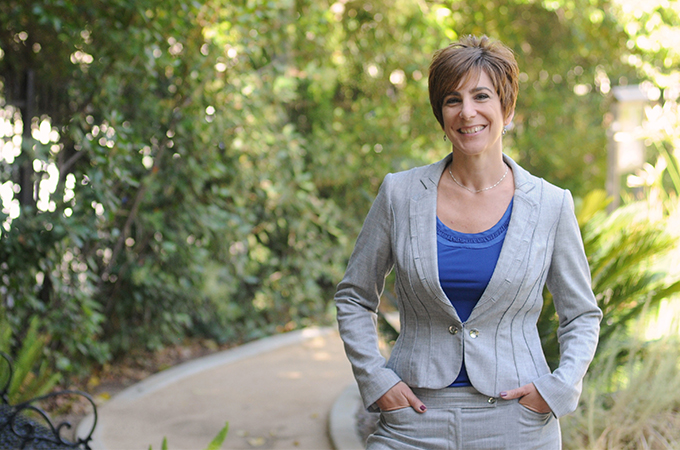During the recent Diversity Town Hall, Vice President for Administration Michelle Rogers ’19 (Ed.D.) spoke about connecting teams across the University of Redlands in order to approach the University’s diversity, equity, and inclusion (DEI) work together. She elaborates in her remarks, below.
As the vice president for administration, I oversee Human Resources, Public Safety, Facilities, Equity and Title IX, Administrative Services, Event and Office Services, as well as our outside vendors Harvest Table and Barnes & Noble. I see this new role as a unique opportunity to connect teams that may have not been connected in the past, so we can approach our DEI work together in a more synergistic way.
I want to be sure the people you all see every day who are keeping our campus safe, maintaining our buildings and grounds, providing a safe and formal process to raise discrimination, harassment, and sexual misconduct complaints, and supporting our business operations have a seat and a voice at the table.
Erica Moorer [director of equity and Title IX coordinator] and Jeremy Hammond [director of Human Resources] will be sharing information about some specific policies and practices just completed and also those currently under way. So, I don’t want to steal their thunder with specifics. Rather, I want to share my philosophical approach to DEI. My focus is on how to create policies and programs that sustain change.
Deficit-based approaches are commonly used as we look for ways to address the needs and problems within our community. This type of approach often comes too late with a focus on intervention rather than prevention.
I prefer active strengths-based approaches because they focus on what is working well to support the growth of individuals and communities. I believe that everyone in our community has competencies, and we must foster an environment where in those competencies are valued and used equitably. One in which everyone feels comfortable sitting at the table and participating in the conversation.
No one person or one policy can fix the problems we face, but, as a community working together, empowering our fellow colleagues, we are capable of solving problems, learning new skills, and challenging our assumptions while we are part of the process together.
So, as I continue to work with my new teams, I will ask:
- What initiatives in our community are successful?
- How can we all play a part in supporting those initiatives?
- Who has the competencies to help lead those initiatives?
- What’s missing?
- How do we ensure everyone feels safe participating in the process while honoring our lived experiences?
I acknowledge that our mostly virtual work environment has presented some challenges during a time we most need our community. But, I am an optimist. And I believe we can move beyond Clark Kerr’s historical description of a university in his book The Uses of the University in which he states that universities have little common purpose but the perpetuation of themselves and their procedures.
Learn more about the University’s DEI initiatives and resources.






